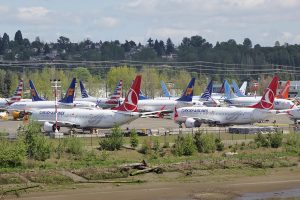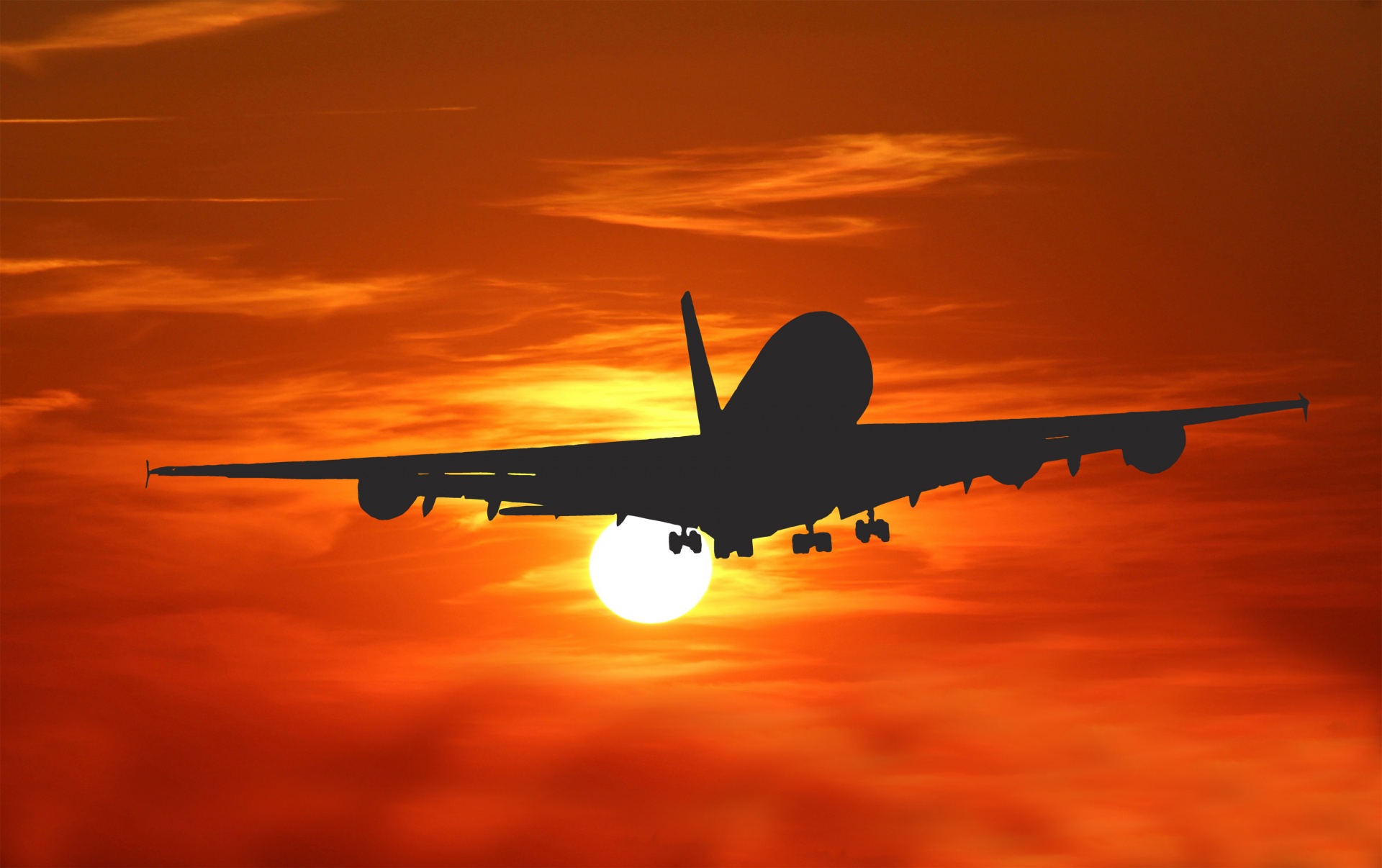There’s a better environmental solution than bailing out filthy industries and propping up a doomed status quo. Stop flying!
Air travel is a massive contributor to global climate change. Effectively reducing carbon levels would require making a significant reduction in the number of flights that take off every day. At the same time, flying is so deeply embedded in modern culture that it’s almost impossible to imagine doing away with it. Then the novel coronavirus changed everything. Suddenly, we’ve been presented with a convergence of circumstances that could make this the best time ever to stop flying – and save the world!
From a climate perspective, flying is the worst way to travel. According to the BBC, a flight from London to San Francisco emits 5.5 tons of carbon dioxide per person, more than two years’ worth of emissions from a family car. Flying from London to Berlin produces more carbon dioxide than one can save by recycling for three years. Although fuel efficiency means that less carbon is emitted per passenger, more people are flying all the time, so the carbon levels keep rising. Choosing to stop flying, or to at least fly far less often, would do a lot to clean up our act.
With the viral spread of the coronavirus, however, travel restrictions and safety concerns caused people to stop flying in short order. Globally, airlines received over $85 billion in government bailout funds with $25 billion from the United States alone. Passenger volume is down 95% in the U.S. compared to a year ago, while 80% of the global fleet has been grounded.
Despite the lack of passengers, many airlines refuse to stop flying. Continuing nearly-empty “ghost flights” is partly the fault of accepting government bailouts contingent on maintaining service to unpopular destinations, a practice criticized by House Transportation and Infrastructure Chairman Peter DeFazio (D-OR). In Europe, temporary legislation has relieved airlines of their obligation to follow through with at least 80% of their scheduled flights, even if the plane is bereft of passengers, lest they forfeit their slots to competitors. If flying fully booked planes is a climate catastrophe, flying empty ones due to bureaucratic requirements is what sports fans call an “own goal.”

Even in the best of times, airlines haven’t been the best corporate citizens. In the last decade, even as passengers paid more fees and tried to fit into smaller seats, the biggest airlines blew most of their available cash on stock buybacks. Perhaps if they had shown some “personal responsibility” and put away a few months of operating expenses as savings instead, as the advice goes, they wouldn’t have had to approach Uncle Sam with hat in hand to beg for no-strings bailouts. They’re still asking to be released from regulations that require them to refund fares for flights they’ve canceled, while jamming other passengers onto packed flights without masks or social distancing. Why the abuse? Because up until now, they knew they can get away with it.
In recent weeks, however, we’ve learned that we can, indeed, get along without so many flights. Online meetings and FaceTime chats reduce the need to be in the same room – or on the same continent – as the people we’re talking to. Reduced pollution cleared skies around the world. When so many fly-in, fly-out meetings could have been an email instead, deciding to stop flying isn’t only the moral option, it’s more practical now than any other time in recent memory.
Eight Democratic Senators recently pressed Congress to demand reduced carbon emissions from polluting industries that are asking for coronavirus bailouts. However well-intentioned (and ill-fated) that move might be, there’s still a better environmental choice than bailing out filthy industries and bad corporate actors: stop flying. This is the time for real, lasting, structural change, to invest in the future instead of propping up the past. Do it now!
Related: How Many Strikes Until We’re Out?


Join the conversation!